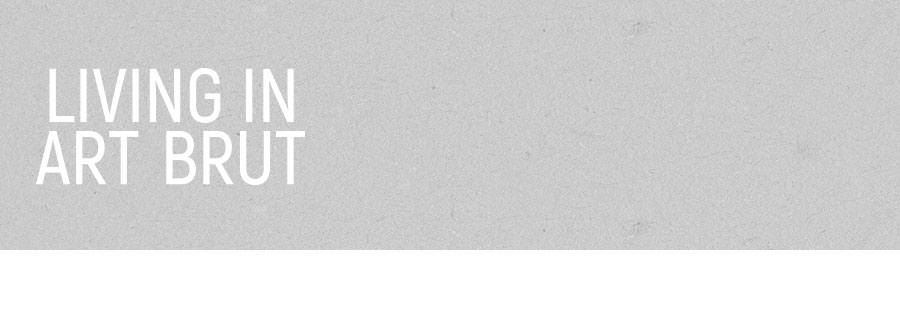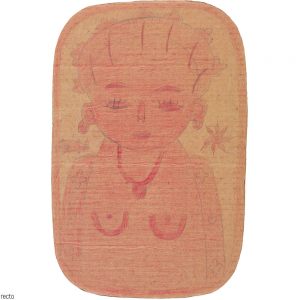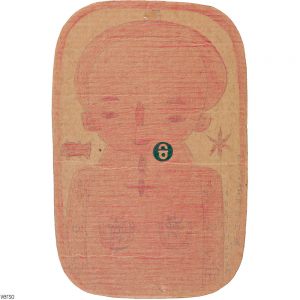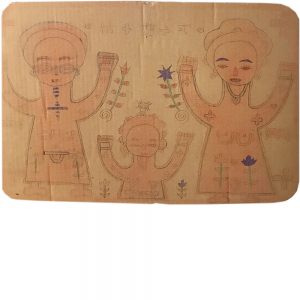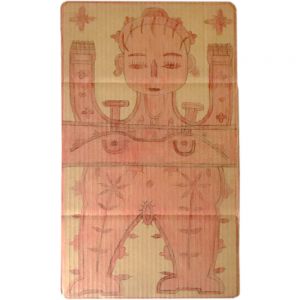Masao Obata
1943 to 2010, Japan
Masao Obata was born in Okayama. His parents divorced when he was still a young child and he grew up with his mother on Manabe-shima, an island near Okayama.
In 1975 his mother died and he was sent to Sanraku-en, a social facility in Tsuyama (Okayama Prefecture) where he did various jobs including
working in the poultry and textiles industries.
Due to psychiatric problems he then stayed at Sanraku-en for many years. In 1985 his father suddenly reappeared and Masao lived with him in Kobe until 1989.
Exactly when Obata began to draw is not known. It was certainly after 1989, when he moved to a social facility in Hifumi-en, Kobe (Hyogo Prefecture), due to his father’s ill health. Obata collected cardboard boxes, took them to his room and cut them up. During the night he drew on the cardboard using black and coloured pencils – mainly images of people, frequently families, depicted in the way he imagined couples with children should live, in stability and peace. When he ran out of space for his numerous pictures he kept them on his bed and slept in between them. When his artworks started to fill up his roommate’s space too, the managers of the facility intervened and took to removing some of his work at regular intervals. In 1995 the artist Kaji Higahiyama came to the institution to teach weekly art classes, and discovered Obata. Since then, several thousand of Obata’s works have been preserved.
At the end of the 20th century Obata’s work started to become known to a wider public. It was first shown in 1998 as part of a group exhibition in the Hyogo Prefectural Museum of Modern Art. Numerous international exhibitions followed. Since then, he has become one of Japan’s best-known Art Brut artists.
His work can be seen at the Collection de l’Art Brut in Lausanne, the Museum im Lagerhaus in St. Gallen, in Bruno Decharme’s abcd collection in Paris, and the collection of Karin and Gerhard Dammann, Switzerland. As of 2021, Masao Obata has also been represented in the 921 works of the “Donation d'Art Brut de Bruno Decharme” at the Centre Pompidou in Paris.
Selected works


